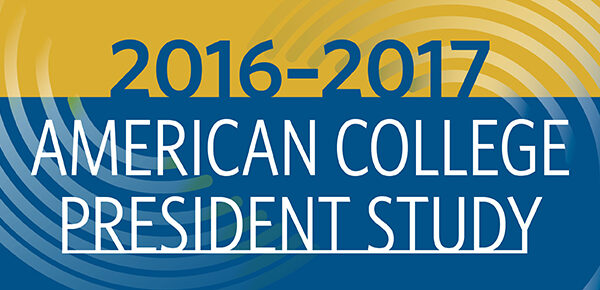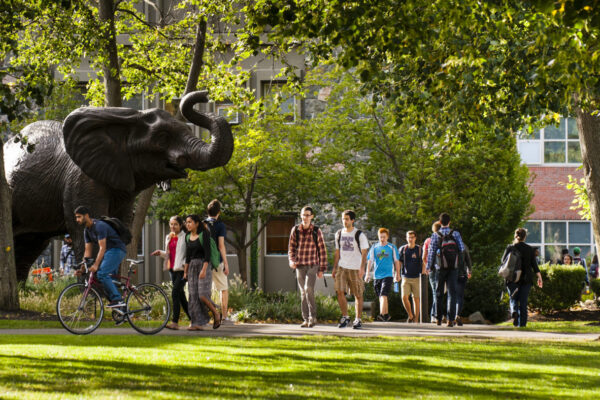By John O’Brien, president of EDUCAUSE. Originally posted on EDUCAUSE Review.
The ACE COIL Leadership Academy is scheduled for April 27-28 in Washington, DC. Registrations will be accepted through April 21. Discounts are available to representatives of HBCUs.
I count myself among the luckiest in the world. I grew up in a small town, and for the first two decades of my life, a “long trip” was a drive of around two hours, to visit family or to go to the nearest small city. Then, when I was in my mid-20s, my life was changed by the opportunity to study abroad as a graduate fellow of Rotary International. For the first time, I got on a plane. I flew to Ireland, where I earned my master’s degree in Anglo-Irish literature at Trinity College, Dublin, founded by Queen Elizabeth in 1592. I walked through the stunning Long Room of the Old Library every morning while doing research for my dissertation, and I sang with the chapel choir at choral evensong services whenever I could. And while I was there, I exponentially broadened and deepened my world through conversations and new ideas. The experience changed how I thought and who I was. It changed my life.
Not surprisingly, as my higher education career has unfolded I’ve been a consistent advocate for study abroad. And as the internet changed how I thought yet again, I became convinced that there is more than one way to experience a bigger world.
Study abroad whenever you can. And internationalize the curriculum whenever you can, including using established and emerging technologies to create international experiences. I was an early promoter of the SUNY COIL model, and I am thrilled to learn that our friends at ACE share this interest. In fact, they have been advocating for using technology to expand access to global learning for over a decade, understanding that less than 10 percent of our students are actually studying abroad.
Participants of the April COIL Leadership Academy will learn how online international collaboration can help their institutions reach their international goals, drawing on the programs and research of ACE’s Center for Internationalization and Global Engagement.
In addition to providing access for those who can’t study abroad because of financial constraints or other commitments, COIL is more cost-effective and scalable than traditional study abroad. Participants of the Academy will learn how a COIL course or module can be developed using their institution’s existing online communication technology, however simple or elaborate.
Facilitators of the ACE COIL Leadership Academy are experienced practitioners and senior campus leaders who can help those new to COIL avoid common missteps. They include the SUNY COIL Center founder and former director, Jon Rubin; Chancellor of Penn State Beaver Jenifer Cushman, who has introduced COIL programs at three different institutions; Jan McCauley, Assistant Director, SUNY COIL Center, who has developed and taught multiple COIL courses; and Keiko Ikeda, founder of the Japan COIL Center based at Kansai University.
There’s no question that nothing is quite the same as actually studying abroad. Navigating unfamiliar streets, enjoying the smells of new foods, and hearing the music of other languages offer a one-of-a-kind experience. But technology offers another dimension of ways to experience other cultures and to study abroad—without the expense of actually getting on a plane and traveling abroad. For some, it is a way to plant a seed for the future.
If you have any questions or comments about this blog post, please contact us.



